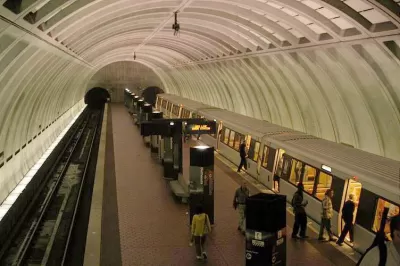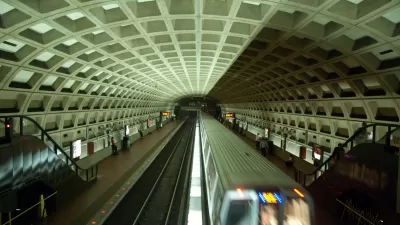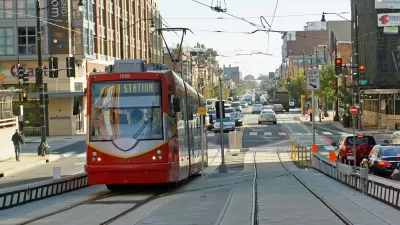The computer-driven trains will start up again next year with the goal of improving riders’ experiences.

Metro says it plans to bring automatic train operation (ATO) back to the Washington, D.C. area in 2019, reports Faiz Siddiqui. The computerized train system was pulled offline in 2009 after the Red Line accident that killed nine people, though ATO was not the cause of the crash.
The agency says that use of ATO will improve travel for Metro users by decreasing headways and making rides smoother. To address safety concerns about the reintroduction of ATO, Metro plans to disable the technology outside of rush hour and to train system operators on its use. Metro also will start using an automatic door system, which will decrease delays at stations and improve safety.
“ATO’s restoration is part of a suite of initiatives [Metro General Manager Paul J.] Wiedefeld plans to introduce for the coming year — including mobile payment through a dedicated app and SmarTrip ride credits for anyone whose trip is 10 minutes later than Metro estimates,” says Siddiqui.
FULL STORY: Metro aims for a late-2019 return to computer-driven trains

Study: Maui’s Plan to Convert Vacation Rentals to Long-Term Housing Could Cause Nearly $1 Billion Economic Loss
The plan would reduce visitor accommodation by 25,% resulting in 1,900 jobs lost.

North Texas Transit Leaders Tout Benefits of TOD for Growing Region
At a summit focused on transit-oriented development, policymakers discussed how North Texas’ expanded light rail system can serve as a tool for economic growth.

Using Old Oil and Gas Wells for Green Energy Storage
Penn State researchers have found that repurposing abandoned oil and gas wells for geothermal-assisted compressed-air energy storage can boost efficiency, reduce environmental risks, and support clean energy and job transitions.

Planting Relief: Tackling Las Vegas Heat One Tree at a Time
Nevada Plants, a Las Vegas-based nonprofit, is combating the city’s extreme urban heat by giving away trees to residents in underserved neighborhoods, promoting shade, sustainability, and community health.

How Madison’s Tree Planting Efforts Are Growing a Healthier Community
Madison’s annual tree planting initiative is enhancing environmental resilience, public health, and community livability by adding 1,400 carefully selected trees citywide, with strong community and institutional support for urban forestry.

Texas State Bills Could Kill Transit Funding in Dallas, Austin
State lawmakers could pull funding from the state’s largest transit agency and the ambitious Project Connect, a voter-approved transit project in Austin.
Urban Design for Planners 1: Software Tools
This six-course series explores essential urban design concepts using open source software and equips planners with the tools they need to participate fully in the urban design process.
Planning for Universal Design
Learn the tools for implementing Universal Design in planning regulations.
Ascent Environmental
Borough of Carlisle
Institute for Housing and Urban Development Studies (IHS)
City of Grandview
Harvard GSD Executive Education
Toledo-Lucas County Plan Commissions
Salt Lake City
NYU Wagner Graduate School of Public Service




























